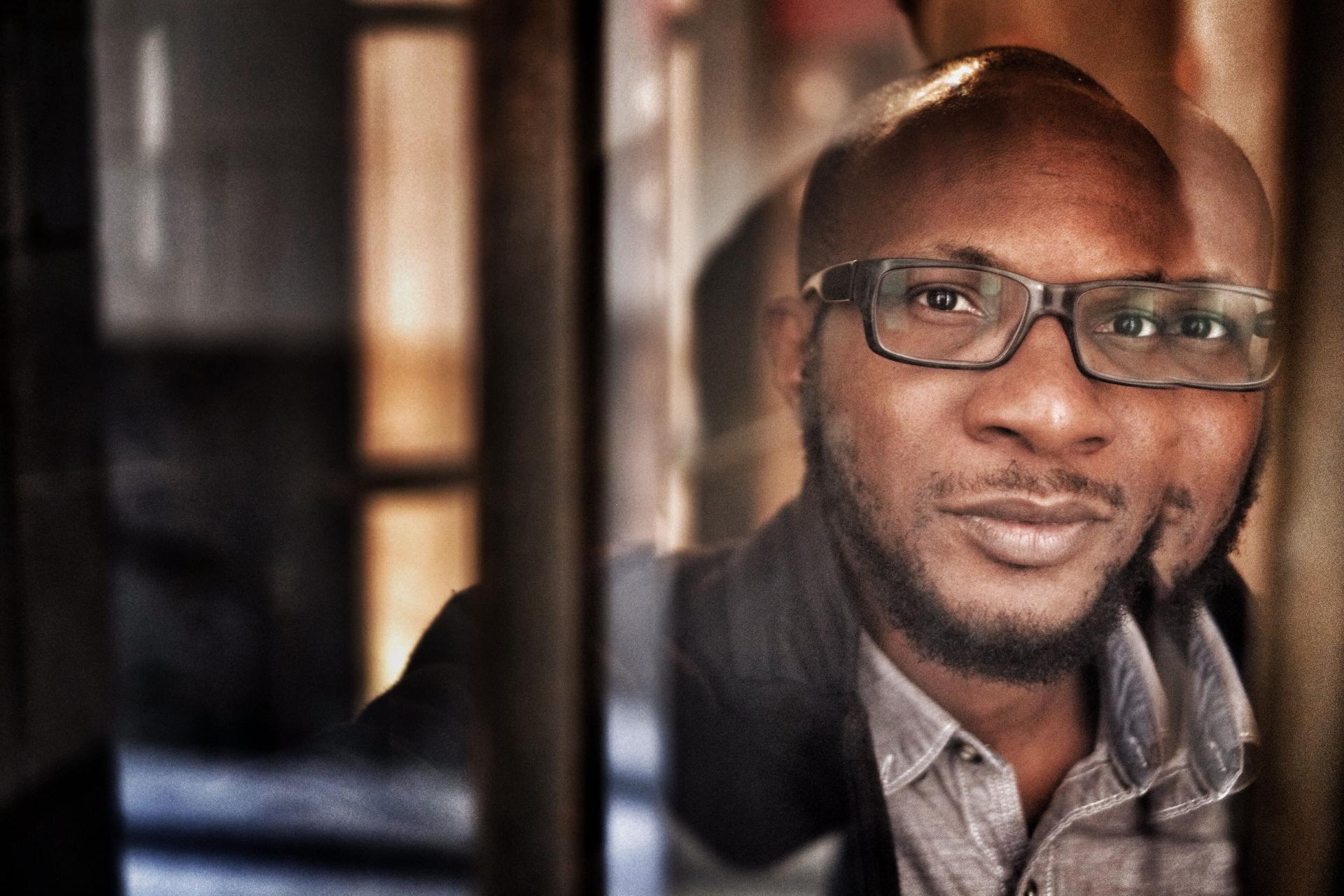Teju Cole was born in the United States and raised in Nigeria.
Teju Cole admits he doesn't feel at home anywhere.
As a citizen of Nigeria and the US, he thinks about art, literature and politics from a point of view he calls "placelessness."
That's one of the themes in his new essay collection, Known and Strange Things. The volume covers the globe, but it's rooted in the dynamism and energy of Lagos, a place the author misses so much he finds himself toggling over to Google Maps to establish a sort of contact.
"I used to have this dream when I came to this country more than 20 years ago of being in a helicopter over Lagos," he says. "Now I can just go over to satellite view and just zoom in closer and closer and closer until I can actually see my family's house with the two cars parked out front."
Race is also front and center in the collection, including in an essay called Natives on the Boat. In it, Cole notes how both Joseph Conrad and VS Naipaul, though several generations apart, were both fond of using the N word.
"It's a murderous word. Contextually, it's a way of saying, 'Your life has no value to me.' That's the context in which it emerged, when it's being used to refer to a slave," he says. "It carries within it all the echoes of its actual physical violence."
But Cole says it's possible for individuals in different contexts to do things to try to reclaim the slur, to lessen its power.
"Racism is not somebody calling me the N word, that happens very rarely," he says. "Racism is the fact that black folks can't get a mortgage."
Cole is increasingly known for the music playlists he curates. He's a huge promoter of the Nigerian music he calls an amalgam of dancehall, hip hop, R&B and tradition.
"It creates a kind of euphoric sound," he says. "We seem to have found the sweet spot. … I mean people talk about Nigerian literature and all of that, but Nigerian music is currently our biggest and most finished export."
Teju Cole admits he doesn't feel at home anywhere.
As a citizen of Nigeria and the US, he thinks about art, literature and politics from a point of view he calls "placelessness."
That's one of the themes in his new essay collection, Known and Strange Things. The volume covers the globe, but it's rooted in the dynamism and energy of Lagos, a place the author misses so much he finds himself toggling over to Google Maps to establish a sort of contact.
"I used to have this dream when I came to this country more than 20 years ago of being in a helicopter over Lagos," he says. "Now I can just go over to satellite view and just zoom in closer and closer and closer until I can actually see my family's house with the two cars parked out front."
Race is also front and center in the collection, including in an essay called Natives on the Boat. In it, Cole notes how both Joseph Conrad and VS Naipaul, though several generations apart, were both fond of using the N word.
"It's a murderous word. Contextually, it's a way of saying, 'Your life has no value to me.' That's the context in which it emerged, when it's being used to refer to a slave," he says. "It carries within it all the echoes of its actual physical violence."
But Cole says it's possible for individuals in different contexts to do things to try to reclaim the slur, to lessen its power.
"Racism is not somebody calling me the N word, that happens very rarely," he says. "Racism is the fact that black folks can't get a mortgage."
Cole is increasingly known for the music playlists he curates. He's a huge promoter of the Nigerian music he calls an amalgam of dancehall, hip hop, R&B and tradition.
"It creates a kind of euphoric sound," he says. "We seem to have found the sweet spot. … I mean people talk about Nigerian literature and all of that, but Nigerian music is currently our biggest and most finished export."
Our coverage reaches millions each week, but only a small fraction of listeners contribute to sustain our program. We still need 224 more people to donate $100 or $10/monthly to unlock our $67,000 match. Will you help us get there today?
